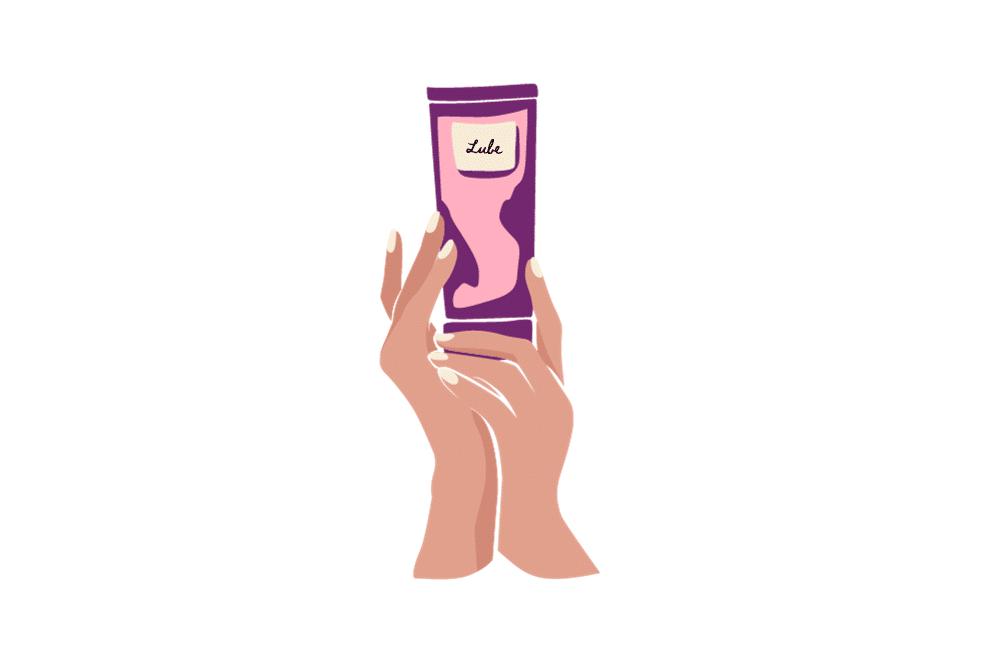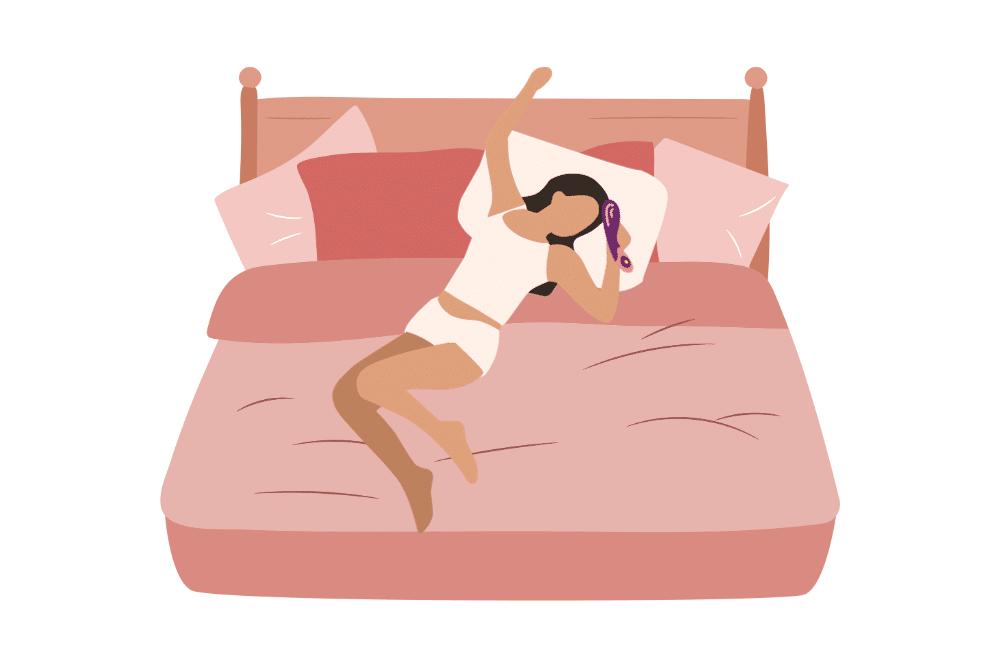In friend circles, where wellness trends constantly grab your attention, it’s essential to separate fact from fiction. One question that’s been whispered but rarely discussed openly is whether masturbation can help you lose weight. As modern, health-conscious women, it’s key to have honest and straightforward conversations about topics that matter. So, let’s dive into the science, dispel the myths, and uncover the truth behind the connection, or lack thereof, between self-pleasure and losing weight.
Is There a Connection Between Masturbation and Weight Loss?
The notion of a connection between masturbation and weight loss has garnered attention and discussion, but it’s essential to clarify that any such link is largely a misunderstanding or oversimplification. While temporary hormonal changes and minimal calorie expenditure may be associated with sexual activity, particularly during masturbation, these factors do not constitute a meaningful or sustainable approach to weight loss.
Weight management primarily hinges on a balanced diet, regular physical activity , overall metabolic factors, and clinically proven weight loss treatments when necessary. Promoting a healthy lifestyle, rather than attributing weight loss to a singular act, is the scientifically sound and responsible approach to overall health and well-being.
The Science Behind It All
Understanding the Basics of Metabolism
Metabolism is the complex set of chemical processes that occur within the body. It involves two primary components: catabolism, which breaks down molecules to release energy, and anabolism, which builds molecules needed for cellular functions. When it comes to weight management, metabolism plays a key role.
- Basal Metabolic Rate (BMR): BMR is the amount of energy your body needs to perform basic functions like breathing, digestion, and maintaining body temperature while at rest. It represents the minimum amount of calories your body requires to survive.
- Caloric Balance: Weight gain or loss is fundamentally influenced by the balance between the calories you consume through food and beverages and the calories you expend through various activities, including BMR and physical activity.
- Weight Loss Factors: Weight loss occurs when you create a calorie deficit, meaning you consume fewer calories than your body needs to maintain its current weight. Activities that increase calorie expenditure, such as exercise, contribute to this deficit.
What Happens to Your Body During Masturbation?
Masturbation is a common sexual activity that involves self-stimulation for sexual pleasure. It is a natural and healthy part of human sexuality and is generally not associated with significant changes in body weight. Here’s what happens to your body during masturbation:
- Hormonal Responses: During sexual arousal and climax, your body experiences hormonal changes. These include the release of endorphins, which can lead to feelings of relaxation and pleasure. However, these hormonal fluctuations are short-lived and do not significantly impact metabolism or calorie expenditure.
- Caloric Expenditure: Masturbation is a relatively low-energy activity compared to other physical activities like exercise. The calorie expenditure during masturbation is minimal and unlikely to contribute significantly to a calorie deficit required for weight loss.
- Individual Variation: The impact of masturbation on energy expenditure can vary based on factors such as duration, intensity, and frequency. However, even in cases of frequent masturbation, the overall impact on weight is negligible compared to nutritional and exercise habits.
While masturbation may lead to short-term hormonal changes and slight calorie expenditure, it does not substantially contribute to weight loss. Weight management primarily depends on factors such as balanced eating, physical activity, and overall metabolic rate. Therefore, attributing weight loss to masturbation alone is not scientifically supported.

Busting the Myths
Several misconceptions and myths surround the idea that masturbation can lead to significant weight loss. Let’s address some of the most common ones:
Calorie Burning
Some people believe that masturbation burns a substantial number of calories. While there is a slight increase in heart rate and energy expenditure during sexual activity, it is minimal compared to the calories burned through exercise. Masturbation alone is not an effective weight loss strategy .
Hormonal Imbalance
Another misconception suggests that frequent masturbation can lead to hormonal imbalances that cause weight loss. However, the body’s hormonal system is complex and tightly regulated, and occasional sexual activity does not disrupt it to the extent of causing significant weight changes.
Dehydration
Some myths claim that losing bodily fluids during masturbation can result in weight loss through dehydration. However, any fluid loss is quickly replenished through regular fluid intake and does not lead to lasting weight reduction.
Addressing Unrealistic Expectations
It’s important to emphasise that relying on masturbation as a primary method for weight loss is unrealistic and potentially harmful. Sustainable weight management involves adopting a holistic approach that includes a balanced diet, regular physical activity, and overall lifestyle choices. While sexual activity is a normal part of human life and can have various physical and mental health benefits, it should not be seen as a quick fix for weight loss. Unrealistic expectations in this regard can lead to disappointment and distract from the genuine strategies needed for healthy and effective weight management.
The Role of Masturbation in Overall Well-being
Stress Relief and Hormonal Balance
Masturbation can positively affect overall well-being by providing stress relief and contributing to hormonal balance. Engaging in sexual self-stimulation can lead to the release of endorphins, the body’s natural feel-good chemicals. These endorphins can induce a sense of relaxation and pleasure, helping to relieve stress and reduce anxiety .
Moreover, the hormonal changes associated with sexual arousal and orgasm can have a calming effect on the nervous system, potentially promoting better sleep and overall mood regulation. While these benefits are essential for emotional well-being, it’s important to remember that they are not directly linked to weight loss but rather to stress management and emotional health.
Emotional Health and Self-Care
Masturbation is an integral aspect of human sexuality and can positively affect emotional health and self-care. It can be an opportunity for self-exploration and body acceptance, enhancing one’s understanding of their desires and preferences. Engaging in regular, healthy sexual activity can promote a positive self-image and self-confidence. Additionally, it can offer a valuable form of self-care and relaxation, allowing individuals to focus on their pleasure and well-being. Understanding and embracing one’s sexuality can lead to improved self-esteem and a more positive outlook on life, which, in turn, can have indirect benefits for overall health and well-being.

Balancing Act: Masturbation and a Healthy Lifestyle
Masturbation can be a natural and enjoyable part of self-care, contributing to stress relief and emotional well-being. However, it should be viewed as just one facet of a holistic approach to wellness. Integrating masturbation into your self-care routine is completely healthy, provided it is done in moderation and doesn’t replace other essential elements of a balanced lifestyle, such as a nutritious diet, regular exercise, and adequate sleep. The key is to find balance, recognising that sexual health is an integral part of overall well-being but not a standalone solution to complex issues like weight management or emotional health.
Making Informed Decisions About Your Health
Ultimately, your well-being is a personal matter, and it’s essential to make informed decisions about your health based on accurate information and realistic expectations. When it comes to weight management, it’s important to recognise that relying solely on any single activity, including masturbation, for weight loss is not a scientifically proven or sustainable approach. Instead, consider a comprehensive and informed strategy that takes into account factors like nutrition, physical activity, and overall lifestyle choices.
Embracing a Holistic Approach to Wellness
A holistic approach to wellness acknowledges that achieving and maintaining health and well-being involves various factors beyond sexual activity. This includes:
- Well-Balanced Diet: Opt for a diet rich in fruits, vegetables, lean proteins, and whole grains. Monitor portion sizes and calorie intake, and consider consulting a dietitian for personalised guidance.
- Regular Exercise: Incorporate regular movement into your routine. Choose exercises you enjoy, whether cardio, strength training, or yoga. Gradually increase the intensity and duration to meet your fitness goals.
- Weight Loss Treatments: If you’re facing challenges with weight management, consider consulting a healthcare professional to explore evidence-based weight loss treatments or medical interventions, if appropriate.
- Very Low-Calorie Diets (VLCD): VLCDs should only be considered under medical supervision and for specific situations. These diets provide very low-calorie intake and are typically used for rapid weight loss in individuals with severe obesity or specific medical conditions.
- Lifestyle Modification: Adopt healthy lifestyle habits such as getting enough sleep, managing and reducing stress, and avoiding excessive alcohol and tobacco use.
While masturbation can positively affect stress relief and emotional health, it should not be seen as a primary tool for weight loss. Instead, consult with healthcare professionals to explore effective and sustainable strategies for achieving your weight management goals while prioritising your overall health and well-being.
References:
- https://www.plannedparenthood.org/blog/can -masturbation-make-you-thin
- https://www.healthline.com/health/healthy -sex/does-masturbation-burn-calories
Disclaimer: The information provided in this blog is for general informational purposes only and is not intended to be a substitute for professional medical advice, diagnosis, or treatment. Always seek the advice of your physician or other qualified health provider with any questions you may have regarding a medical condition. Never disregard professional medical advice or delay in seeking it because of something you have read on this blog. Reliance on any information provided in this blog is solely at your own risk. The health and medical information on this site is provided “as is” without any representations or warranties, express or implied.

